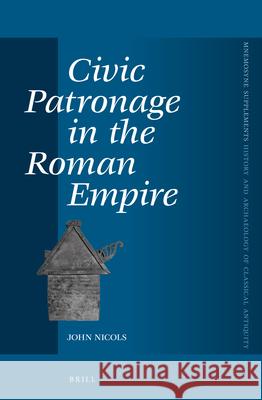Civic Patronage in the Roman Empire » książka
Civic Patronage in the Roman Empire
ISBN-13: 9789004214668 / Angielski / Twarda / 2013 / 362 str.
The Roman Empire may be properly described as a consortium of cities (and not as set of proto national states). From the late Republic and into the Principate, the Roman elite managed the empire through insititutional and personal ties to the communities of the Empire. Especially in the Latin West the emperors encouraged the adoption of the Latin language and urban amenities, and were generous in the award of citizenship. This process, and 'Romanization' is a reasonable label, was facilitated by civic patronage. The literary evidence provides a basis for understanding this transformation from subject to citizen and for constructing a higher allegiance to the idea of Rome. We gain a more complete understanding of the process by considering the legal and monumental/epigraphical evidence that guided and encouraged such benefaction and exchange. This book uses all three forms of evidence to provide a deeper understanding of how patrocinium publicum served as a formal vehicle for securing the goodwill of the citizens and subjects of Rome.











